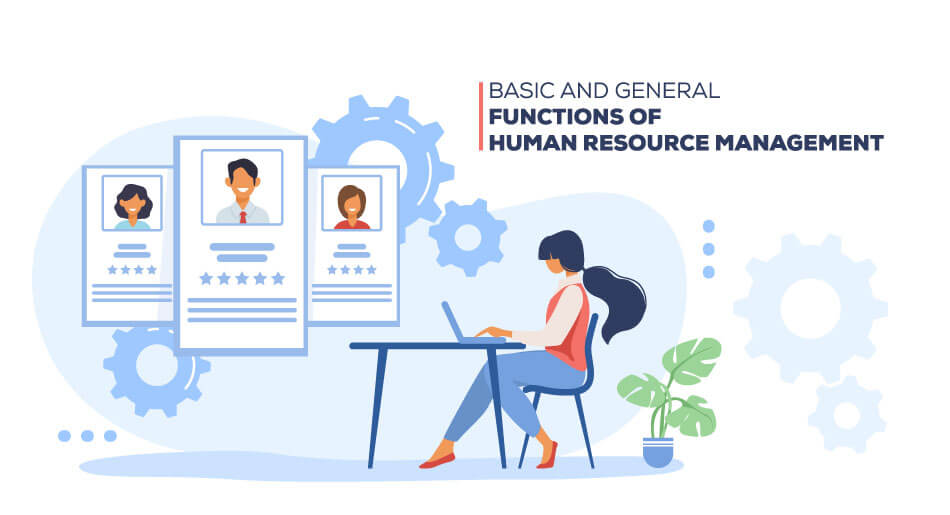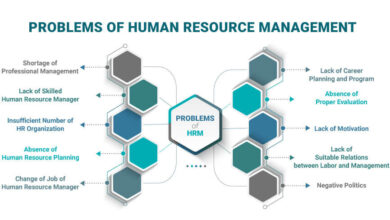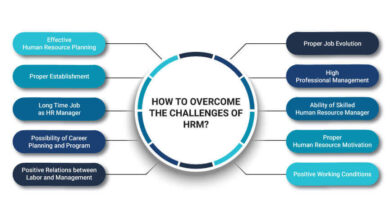The Best 25 Functions of Human Resource Management (HRM)
HRM plays an important role in ensuring the smooth functioning of an organization. It contributes to the growth of various business profits of an organization from the formulation of various human resource recruitment policies. Therefore, the functions of human resource management act as an invisible agent, ensuring the smooth running of the organization.
An analysis of the HRM history review shows that it plays a key role in helping employers and organizations to reach their goals. Therefore, the role of HRM is, directly and indirectly, related to the development of any organization, in sound planning, taking the right decision making, and proper management. However, there are presented core functions with a view to protecting the different objectives of HRM.
What are the Functions of HRM:
After recruiting or selecting an employee through a proper process, an HR manager skills and develops that application through the necessary training, makes him/her effective in the workplace, and performs the tasks or activities required for the organization to make a profit. These types of activities are called the functions of human resource management (HRM). Further, the functions of HRM comprise job analysis, job design, hiring or recruitment and selection, development, training, benefits, compensation, performance management, labor relations, managerial relations, etc. But these functions are categorized in two ways. Such as:-
- A. Basic Functions or Core Functions of Human Resource Management
- B. General Functions of Human Resource Management
Below is an attempt to discuss in detail the various points of these basic or core and general functions. So that a reader is able to easily understand or comprehend the matters. A reader can read the principles of HRM which are more related to this topic.
A. Basic Functions of Human Resource Management:
Analysis shows that there is a lot of work to be done in human resource management. Some are basic functions, and some are general functions. HRM’s basic functions are also known as core functions of HRM. From the different scholars’ viewpoints, the basic functions of core functions of HRM are five. Such as:-
- Acquisition: The first of the basic functions or core functions observed in human resource management is to acquire skills and committed people for the organization.
- Development: After the acquisition, the next function is to develop human resources training. The main reason for this development is that they can work efficiently and use their skills and abilities to a great extent.
- Motivation: Keeping employees in the organization is also very important. After making human resources efficient, HRM will have to keep them in their organization for a long time. This purpose can be fulfilled by applying motivational means.
- Maintenance: Another basic function of human resource management is to maintain the people in the organization so that they can devote themselves wholeheartedly to keeping a good relationship with management.
- Compliance: Each country has its own labor laws and regulatory compliance, which each company is obliged to comply with. In contrast, companies have to face various legal complications. Therefore, the main duty of HRs of organizations is to uphold the principles of maximum security, elimination of sexual harassment, and discrimination in their organizations. If necessary, implement additional policies keeping in view the overall issues.
These five are the basic functions of human resource management. Most organizations are involved in conducting the above functions to attain pre-determined goals.

B. General Functions of Human Resource Management:
Human resource management functions are related to a variety of activities that significantly affect all aspects of an organization. Human resource management refers to the concepts and strategies for performing the “human” or human resource aspects of a management job, including recruitment, screening, training, rewards, and evaluation. In its general sense, it refers to the management of the people in charge of the work that most managers have to fulfill. Human resource managers and educators have argued for some time that human resource management ends and other effective management begins. These functions are given below:
01. Formulation of Human Resource Policies:
Human resource managers should plan for appropriate human resource policies in the organization and try to formulate them.
02. Recruitment of Skilled Human Resources:
Another most important function is to procure efficient employees from different sources. Not only is that selection of human resources also an important function of Human Resource Management. Human resource mobilization and selection alone cannot help achieve human resource management goals.
03. Selection and Posting of Human Resources:
After recruiting efficient employees, the third step is to give them proper guidance and place them correctly, so that they can work comfortably and achieve organizational goals as desired by management. Proper placement and guidance can further motivate human resources to perform their functions.
04. Job Analysis and Description:
Job analysis is a systematic exploration of the activities within a job. It is a technical method used to determine a job’s responsibilities, obligations, and accountability. This analysis involves the identification and description of what is happening or what is not happening in the work.
05. Promotion and Transfer:
The fifth step is the promotion and transfer of the employees according to their skill and performance in the right places. Employees deserve it after a few years. Similarly, employees may be transferred as per the needs of the organization or the desire of the employees.
06. Orientation and Socialization:
Through orientation background information about the firm is given to the employees and executives. By the socialization process employees and executives are given some guidelines so that they can adjust themselves to the organizational environment.
07. Training and Development:
After recruiting and placing, the next step is to train and develop the human resources collected recently. There are different types of methods in training and development. Training and development mean changing how they work, what employees know, their attitude toward their work, or their interactions with supervisors or colleagues.
08. Career Planning and Development:
Human resource managers should try to plan for the development of the career of their human resources. A career means a pattern of work-related experience throughout the span of a person’s life. Career development focuses on the success of organizational workers and long-term career effectiveness.
09. Job Evaluation:
Without a job, evaluation efficiency cannot be judged. Therefore, the role of employees should be evaluated to place them in the proper place of the Pay Structure.
10. Performance Appraisal:
Performance appraisal is a process of systematic evaluation of the work-related performance of employees for selecting them for benefit packages.
11. Remuneration:
Workers come to work in the organization for getting remuneration. Without it, human resources cannot work. Human resources must be paid a reasonable fee for proper functioning.
12. Providing Benefits and Incentives:
For getting co-operation from the human resources the human resource managers should provide those benefit packages and incentives.
13. Handling Grievances:
Human resource managers should handle all sources of grievances placed before them tactfully and carefully. Discipline and instability can be corrected by handling complaints properly. It is the major function or characteristic of HRM.
14. Maintaining Discipline:
Discipline is essential for an organization to work properly. Human resource managers should take appropriate disciplinary steps to prevent occurring the indiscipline action. It is necessary to ensure to maintain disciplinary activities.
15. Workers’ Participation:
The present age is democratic. Workers’ participation is an essential condition for taking decisions and formulating rules and regulations. Worker participation ensures uninterrupted formulation and implementation of decisions.
16. Labor-Management Relations:
There is a need for good and harmonious employer and employee relations. Historically, there is a conflict between labor and management from a relationship perspective. A good labor-management relationship is a must for organizational peace as well as a work environment.
17. Reduction of Dispute:
Under this function settlement of dissatisfaction among the employees is done by human resource managers with a view to bringing and maintaining industrial peace.
18. Managing Trade Unions:
A trade union is very powerful in the industrial context. Without satisfying the trade union leaders, the human resource managers cannot run the organization properly. That is why managers need an acceptable agreement with trade union leaders.
19. Collective Bargaining:
Through collective bargaining, the human resource manager tries to settle disputes of employees with the management and gain reasonable benefits.
20. Maintenance of Working Environment:
Maintenance of the working environment is a must for every organization. Ensuring a healthy work environment is not only a good job, but it also benefits the employer, such as increasing the positive attitude, increasing productivity towards their organization, and so on.
These are the detailed functions of Human Resource Management (HRM). There may be other types of classifications or other functions in different books. In most cases, these functions are usually performed.
Footnote:
HR is seen to play a direct multifaceted role in a company achieving maximum profit and increasing its workforce. It is important for HR to have a wide range of skills in the functions of human resource management to demonstrate their professionalism. Not only sound education but his alertness and dedication too are most required. As the days go by, the expansion, development, and change of society, workplace, and business are being noticed. With this change comes an HR change. The ability to adapt is to adapt to the various challenging functions of HRM.




